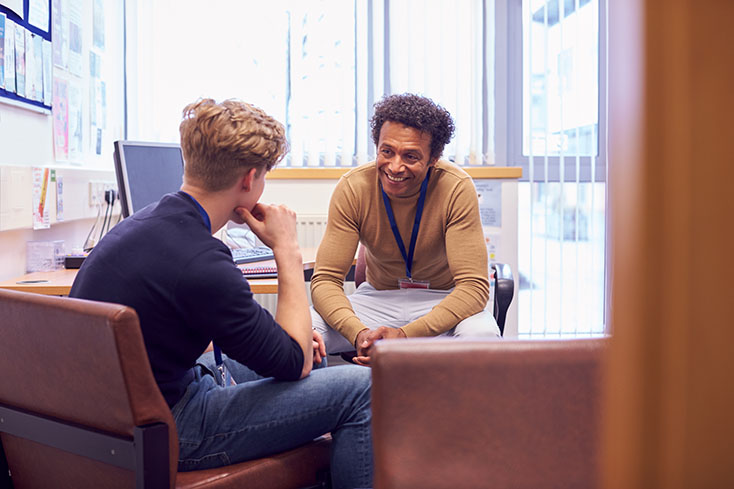Tactics For Early Intervention
Increase Awareness And Services
Fifty percent of all lifetime mental illness begins by age 14, and 75% by age 24. So, to treat mental health conditions early, and it’s critical we increase services available to young people. We must also increase awareness about those services, so that when a young person begins struggling, they know where to find them.
Increase The Pipeline
To increase services, we have to talk about workforce development. How do we incentivize people to enter into and remain in the mental health provider space? How can we reduce barriers to receiving the necessary qualifications to provide mental health support? How do we empower and support peer specialists and school psychologists/social workers?
If we want more services, we have to invest in the people who provide them.
Increase Preventative Measures
When it comes to our physical health, we often speak of preventative measures to reduce the likelihood of serious illness. For example, we talk about exercise, diet and adequate sleep to prevent the likelihood of cardiovascular disease. There are similar preventative measures we can take to protect our mental health too, such as mindfulness, breathing exercises, challenging unhealthy thought patterns, developing supportive communities and more.
We need to explore how we can bring education about self-care, healthy coping mechanisms and other protective factors to young people. Providing youth and young adults tools for resilience can help guard them from developing more serious mental health challenges when they encounter stressors later.
How To Make Change
Thinking about all of the pain young people are experiencing right now and how much systemic change still needs to happen can be overwhelming. It’s important to remember that, so often, change begins on an individual level — change can begin with us.
Addressing the youth mental health crisis and saving lives through early intervention starts with making the simple and intentional choices to show up for the young people already in our lives every day by doing simple things like:
- Asking them how they’re really doing
- Reminding them it’s OK to not be OK
- Assuring them they are not alone
- Helping to connect them to resources
If you want to get even more involved, you can advocate with your local school boards, city councils and state legislatures to increase mental health professionals, education and services in schools.
